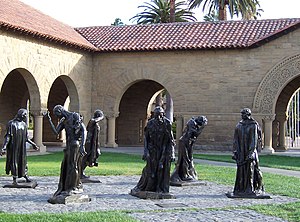 Interesting statistics based on a web survey with more than 130,000 Wikipedians responding (data from the working draft).
Interesting statistics based on a web survey with more than 130,000 Wikipedians responding (data from the working draft).
- The average age is 25.8 years: Wikipedia are pretty young! One question could be “do they have already developed the wisdom needed to crystallize all humans knowledge?”
- Less then 13% of contributors are women: this is pretty big unbalance! Again, do Wikipedia reflect a gender-balanced perspective?
- Given the relative young age of contributors, it is interesting to note that 4.59% hold a PhD
- only 30% of the respondents say they have a partner
- only 14% of the respondents say they have a children
Well in fact it is well acknowledged that Wikipedia suffers some systemic biases: The average Wikipedian on the English Wikipedia is (1) a man, (2) technically inclined, (3) formally educated, (4) an English speaker (native or non-native), (5) white, (6) aged 15–49, (7) from a majority-Christian country, (8) from a developed nation, (9) from the Northern Hemisphere, and (10) likely employed as a white-collar worker or enrolled as a student rather than employed as a labourer (from a previous survey).
Interesting are also the following facts:
- On average, contributors spend 4.3 hours per week contributing to Wikipedia
- Regarding their motivations to contribute, respondents mentioned as their top two reasons that (1) they liked the idea of sharing knowledge, and (2) that they had come across an error and wanted to fix it. This would suggest the strategy of leaving around small errors can be an idea to improve participation. I wonder the results of such a test: the Wikipedia web server servers, to random users who never contributed, the Wikipedia page with automatically inserted small errors and typos in it and record this. Then by analyzing automatically her history of future contributions it would be possible to check: Does the non-contributor-yet become a contributor? Does she remain a contributor? Is this percentage significantly higher than for users who received “normal” pages?
- I don’t think I have enough information to contribute was reported by 52% of respondents. I am happy just to read it; I don’t need to write by 49%. “I don’t have time” follows with 31%. I don’t know how by 25%.
- For non-contributors, the most important factor that would make contribution more likely is “I knew there were specific topic areas that needed my help”. This suggests that a recommender system suggesting in a personalized way which wikipedia pages might benefit from YOUR contribution can be a useful tool (see for example the paper “SuggestBot: Using Intelligent Task Routing to Help People Find Work in Wikipedia” by Cosley, D.; Frankowski, D.; Terveen, L.; Riedl, J. Anyway I tend to be against this because it will be a strong influence of the machine (the algorithm) on where humans should pose their attention and I think the system is better self-regulated based on the interests of everyone.
- 42% of the respondents who did not donate to Wikipedia say they don’t know how to do it. Then, for them and for you, http://donate.wikipedia.org
(Photo credits: Foofy. Under Creative Commons.)


![Reblog this post [with Zemanta]](https://i2.wp.com/img.zemanta.com/reblog_e.png?w=625)


